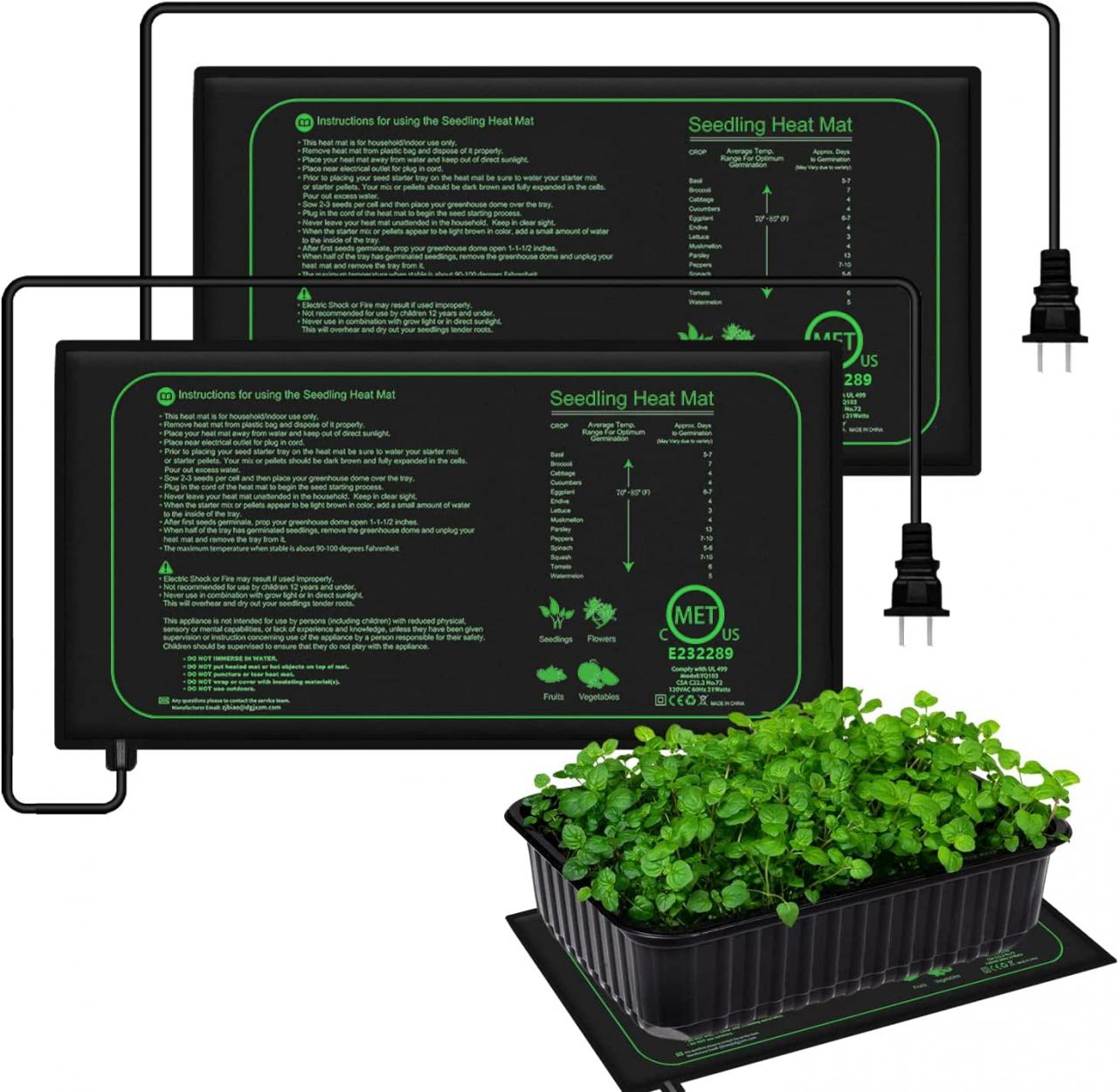Starting seeds indoors can be a rewarding and cost-effective way to grow a wide variety of plants, from vegetables to herbs and flowers. However, getting those seeds to germinate and thrive can be a challenge, especially if you’re working with limited space or less-than-ideal growing conditions. That’s where a seedling heat mat comes in handy.
What is a Seedling Heat Mat?
A seedling heat mat is a thin, waterproof heating pad designed specifically for seed starting. It’s placed under your seed trays or containers to provide gentle, consistent warmth to the soil, helping to create the ideal environment for seeds to germinate and seedlings to establish strong roots.
Benefits of Using a Seedling Heat Mat
Using a seedling heat mat offers several advantages for indoor seed starting:
Faster Germination: By providing consistent warmth to the soil, a heat mat can significantly speed up the germination process for many types of seeds. This means you’ll see your seedlings emerge sooner, giving you a head start on the growing season.
Improved Germination Rates: Some seeds, like tomatoes and peppers, require specific soil temperatures to germinate successfully. A heat mat helps ensure that the soil stays within the optimal range for each type of seed, leading to higher germination rates and fewer duds.
Stronger Seedlings: The gentle warmth provided by a heat mat promotes healthy root growth in seedlings. Strong roots mean stronger, more vigorous plants that are better equipped to handle transplanting and thrive in the garden.
Extended Growing Season: By starting seeds indoors with the help of a heat mat, you can get a jump on the growing season and harvest crops earlier than you would if you waited to sow seeds directly in the garden.
Versatility: Seedling heat mats are compact, lightweight, and easy to use. They can be placed on shelves, tables, or even on the floor, making them a flexible option for gardeners with limited space.
How to Use a Seedling Heat Mat
Using a seedling heat mat is relatively straightforward, but there are a few key things to keep in mind:

Choose the Right Mat: Look for a heat mat that is waterproof, durable, and the appropriate size for your seed trays. Many mats come in standard sizes like 10″ x 20.75″.
Set the Temperature: Most seedling heat mats have a built-in thermostat or come with a separate controller. Set the temperature to the optimal range for your seeds, typically between 70-85°F (21-29°C).
Keep It Covered: Place your seed trays or containers directly on the heat mat and cover them with a clear dome or plastic wrap to retain moisture and warmth.
Monitor Soil Moisture: Because the heat mat will cause the soil to dry out more quickly, check it regularly and water as needed to keep the soil consistently moist but not soggy.
Remove Once Seedlings Emerge: Once your seeds have germinated and the seedlings have emerged, you can remove the heat mat. Leaving it on after germination can cause the seedlings to become leggy and weak.
Safety Considerations
While seedling heat mats are generally safe to use, there are a few precautions to keep in mind:
Avoid Fire Hazards: Never leave a heat mat unattended or place it near flammable materials. Make sure the mat is unplugged when not in use.
Check for Damage: Inspect your heat mat regularly for any signs of damage, such as frayed cords or punctures in the mat itself. Discontinue use if you notice any issues.
Use with Caution: Some heat mats can get quite hot, so be careful when handling them and keep them out of reach of children and pets.
With proper use and care, a seedling heat mat can be a valuable tool for indoor seed starting. By providing the right conditions for seeds to germinate and seedlings to thrive, you can enjoy a bountiful harvest of healthy, productive plants.